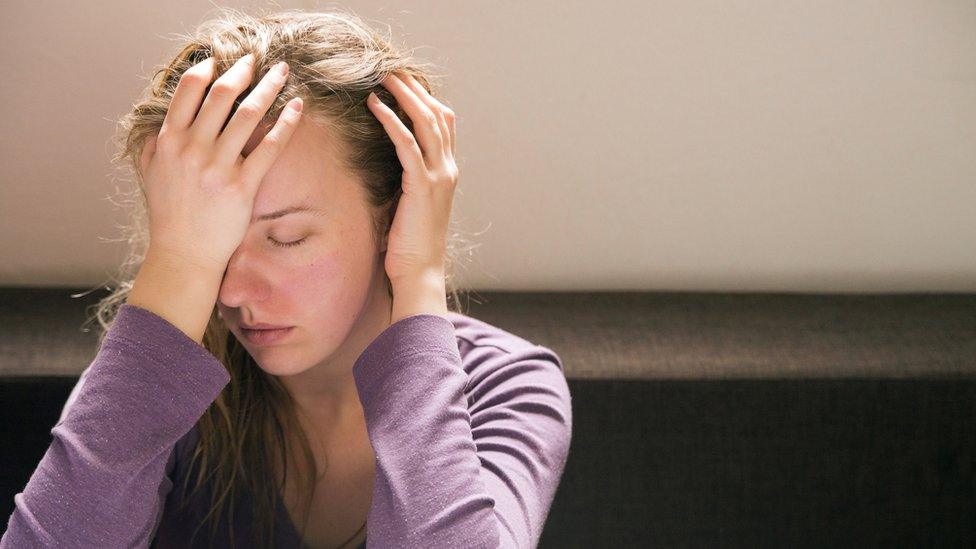The charity helping women move out of prostitution into work
- Published
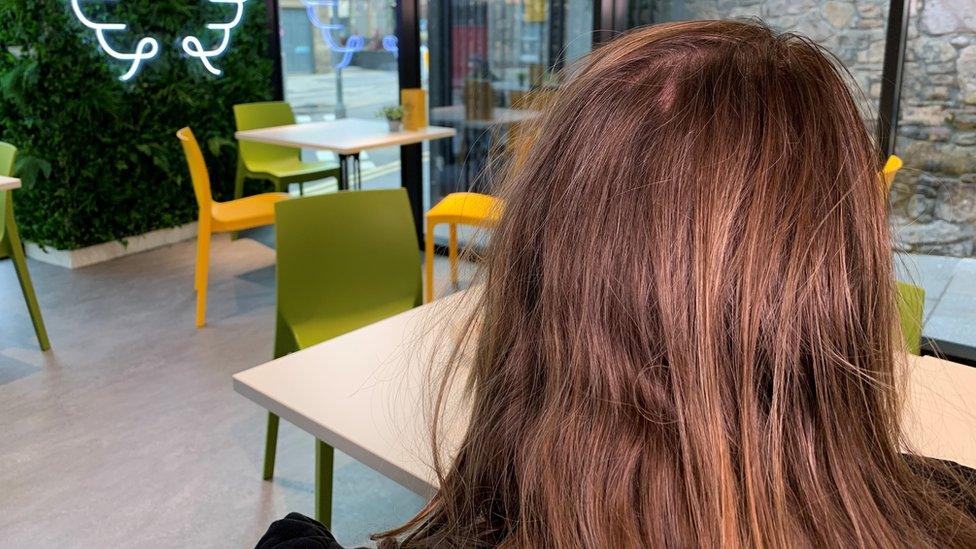
Sarah told the BBC her first encounter with sex work came when she was a 19-year-old student
Sarah is one of dozens of women being supported to move out of prostitution and into work by a Scottish government-funded pilot scheme.
She told the BBC her first encounter with prostitution came when she was a 19-year-old student in "extreme financial difficulty".
Sarah said she was "absolutely appalled" when she was waiting at bus stop and a man called her into his office building to tell her he knew how she could make a lot of money quickly.
Months later, when she was struggling to buy food, she phoned him and he got her a taxi straight to a brothel in Edinburgh.
The brothel owner told her he needed "to taste what the food was like" and took her into a room where he had sex with her.
"I did not have control. I did not consent. I was like a rabbit in headlights," said Sarah, whose name has been changed to protect her identity.
"Afterwards he gave me £20 and it felt like £1,000. I went and bought food with that money."
'I felt like an alien'
The pilot project to help women in Edinburgh out of prostitution and into jobs is run by the charity Sacro.
It has been running for 12 months and has already supported eight women.
The scheme provides emotional support and practical help including clothing for interviews, writing CVs, building self-esteem and linking the women into employment.
The Scottish government funds two other projects to help women out of commercial sexual exploitation.
In future they could be rolled out more widely across Scotland as part of the Scottish government's pledge to tackle violence against women.
Sarah said she had planned to work in the brothel for two weeks to pay off her debts and then quit.
But she got caught in an vicious cycle of trying to get out and find other work but failing.
"I did try to do normal jobs but I just ended up pulling out of them," she said. "I felt like an alien because of all the trauma."
She said she got used to "living on the edge" and developed a dependency on alcohol and a drug called GHB, otherwise known as the date rape drug. She ended up staying in prostitution for 20 years.
'It was trauma to me'
Now in her 40s, Sarah said she is impulsive and has repeatedly made bad decisions about money - partly as a result of her diagnosis of ADHD.
Her father was an alcoholic and her mother abandoned her because of postnatal depression. She was sexually abused as a child and ended up in care.
Sarah said she was already "isolated and dysfunctional" and that prostitution brought back her childhood trauma.
"I had to obliterate myself with drugs to get through it," she said. "Prostitution is paid rape. It is not a choice. It is not fun. It was not like work to me. It was trauma to me."
She says she finally broke free after she suffered a violent sexual assault by two men.
"The trauma of that made me put on 3st (19kg) in weight very quickly and that meant I couldn't work because I was so overweight," she said.
"I wanted to become invisible to men by putting on weight."
For the past three years Sarah has been receiving support and counselling through Sacro's Another Way project and now they have helped her to find a job working in a shop.
"It is only part-time but I feel I have really achieved something good to finally be in the normal world," she told the BBC.
Susie Waddington, gender based violence service manager at Sacro, told the BBC the project offered a combination of practical support - like interview skills - while also building women's trust and self-esteem.
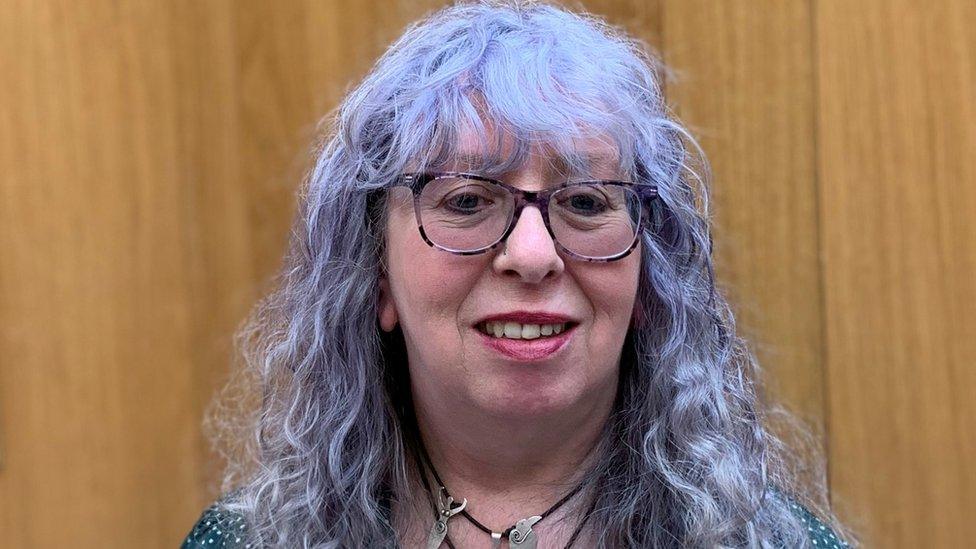
Susie Waddington, from Sacro, said it was also about building women's trust and self-esteem
She said: "It is not just about funnelling them into a Poundland job. It is about helping them build their self-esteem and their self-confidence and their skill base.
"It is a slow process."
The Scottish government said the pilot was part of its work to tackle misogyny and violence against women.
Elena Whitham, minister for community safety, said commercial exploitation was a form of violence against women.
She said women were not commodities to be bought and sold - and efforts must be made to tackle demand from men.
"Women's inequality is a cause and consequence of women ending up in a position where they feel they have no choice except to sell sex," she said.
Related topics
- Published11 September 2020
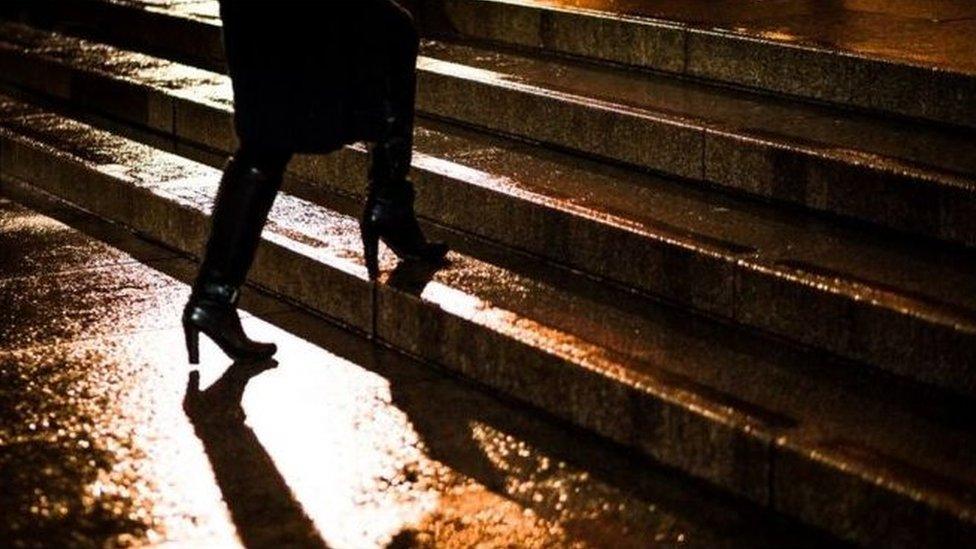
- Published11 December 2020
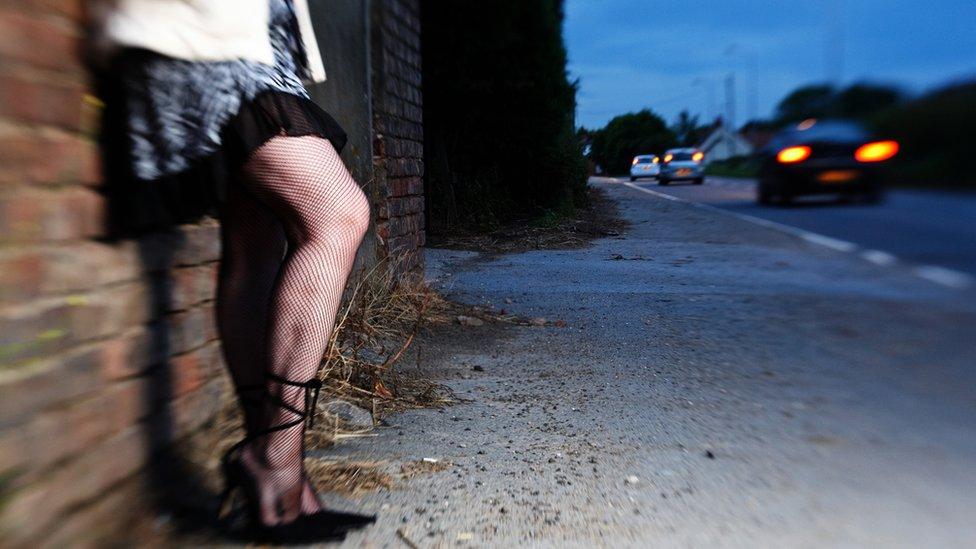
- Published6 September 2021

- Published8 March 2022
